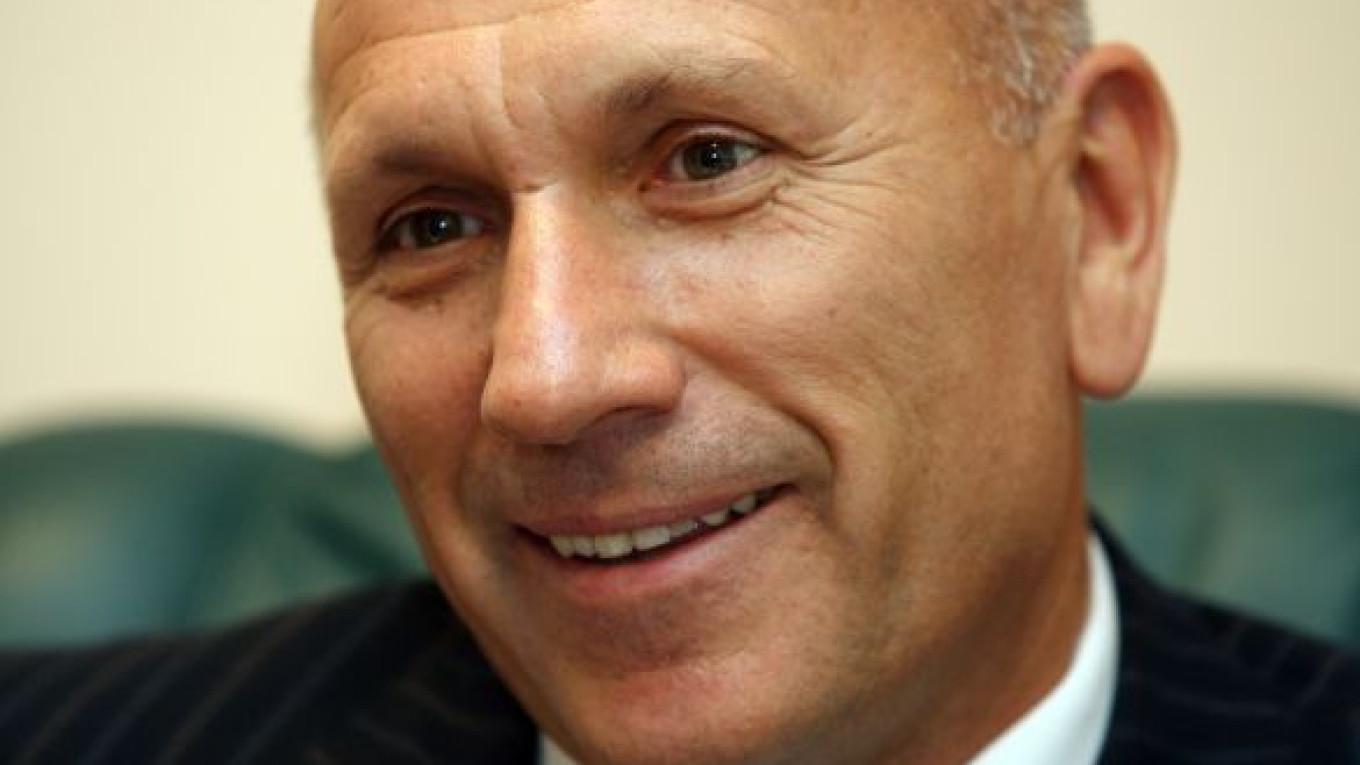The fatal explosions that ripped apart Russia’s largest underground mine may stall ambitions among the country’s coking coal producers to expand exports of the steelmaking raw material to Asia just as prices soar.
Raspadskaya’s 9 million-metric-ton-a-year mine in Siberia’s Kemerovo province, which was damaged by two blasts on May 8 and 9 that killed at least 90 people, may take years to rebuild, chief executive Gennady Kozovoi said last week.
Raspadskaya and rivals Mechel and Sibuglemet targeted Asian markets in the past two years to diversify sales as local demand faltered. Now they may face state pressure to redirect exports to support steelmakers at home, UralSib analyst Nikolai Sosnovsky said, citing the precedent set by an intervention in the coal market by Prime Minister Vladimir Putin following a supply shortage in 2008.
“If the situation’s not resolved, we’ll lobby for export duties,” said Sergei Shatirov, a federal lawmaker for the Kemerovo region and first deputy of a parliamentary panel on industrial policy.
Asia made up as much as 40 percent of Russian coking coal exports in the first quarter, Renaissance Capital analyst Boris Krasnozhenov said. Russian output rose 41 percent to 16.2 million tons in the first quarter, with 3.5 million tons exported and 1 million tons going to Asia. Russia accounts for 6 percent of coal shipped by sea, according to UBS.
Steelmakers around the world have been restarting capacity in the past year, and raw material prices have surged. In March, mining companies BHP Billiton and Rio Tinto Group won a 55 percent price increase for coking coal deliveries to Japanese steelmakers for this quarter.
The accident at Raspadskaya’s mine added “another couple of notches of tightness” to a “chronically tight” market in Russia and Ukraine and may spur coal imports by both countries, said Gerard McCloskey, founder of McCloskey Group, a coal-research company.
Exports comprised 28 percent of Mezhdurechensk-based Raspadskaya’s sales last year, compared with 22 percent in 2008. Kozovoi told RBC Daily last month that Asia may eventually account for as much as 45 percent of revenues.
The company signed supply contracts with South Korean steelmaker Posco and Japan’s JFE Holdings last year after previously being almost unknown in the region, said Alexander Pukhayev, an analyst at VTB Capital. ?
“They didn’t have contracts, no one knew them,” Pukhayev said. “The Asian expansion was important because it gave them new sales options.”
Raspadskaya sells coal in Russia for as much as 4,400 rubles ($146) a ton, excluding freight and tax, according to Ukrainian data provider Metal Expert. Russian coal was offered at $200 a ton at ports in the nation’s Far East in April, up 5 percent from March, Metal Expert data shows. Including transport costs of about $50 a ton, the difference between export and domestic prices is “slight,” Pukhayev said.
Coking coal use has “stabilized,” Viktor Rashnikov, the billionaire chairman of Magnitogorsk Iron & Steel Works, said last week. Faced with expanding Asian demand, the government may seek to “rein in” spot foreign sales abroad to help plug the gap in supply at home, said Alexei Morozov, an analyst at UBS.
Miners should bear in mind what happened when the government intervened in the coking coal industry in 2008 after the country’s steelmakers were short of the raw material, Sosnovsky said. ?
Mechel lost half its market value in August of that year after Putin said the company used foreign sales to minimize tax payments. It was later found to have broken anti-monopoly laws.
“I don’t think they will want to repeat that,” Sosnovsky said in Moscow.
Raspadskaya fired Igor Volkov, head of its flagship mine, on Tuesday after Putin rebuked him Monday. Raspadskaya CEO Kozovoi will take over Volkov’s duties at the mine, company spokeswoman Galina Kovalchuk said by phone. Raspadskaya has dropped 14 percent in Moscow trading since the blasts, erasing gains for the year.
Mechel spokeswoman Yekaterina Videman and Raspadskaya spokesman Alexander Andreyev declined to comment on the company’s Asian sales. No one at Sibuglemet’s Moscow office could be reached for comment.
The blasts at Raspadskaya’s Siberian mine, which shares the company’s name, led to a collapse of some of its 370 kilometers of underground passages in what is Russia’s biggest coal disaster since 2007.
Putin ordered an investigation. It will take about a year to reconstruct the mine at a cost of 6 billion rubles ($200 million), Kemerovo regional Governor Aman Tuleyev told Interfax.


